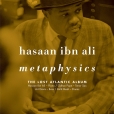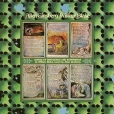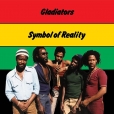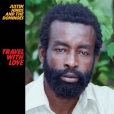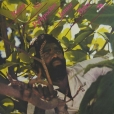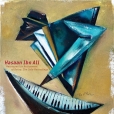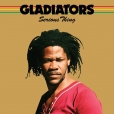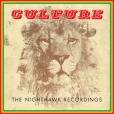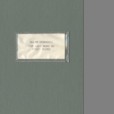Your basket is empty

Little Richard
The Rill Thing
Omnivore
His startling 1970 comeback for Reprise, recorded at Fame Studios in Muscle Shoals, Alabama. A blend of blues, Sly Stone and country rock loaded with the Richard scream, rollicking piano and booting saxophone. ‘He was just singing his booty off,” recalled Travis Wammack (who wrote Greenwood, Mississippi for the session).
The title track kicks off side two with a staggering dollop of super-heavy funk: ten increasingly frazzled minutes of breaks-and-beats heaven pilfered by everyone from Big L and Lord Finesse to Prodigy.
The story goes that Giant Steps is indebted to the harmonic ideas of Hasaan, with whom Coltrane practised intensively in the early fifties; also Trane’s so-called ‘sheets of sound’. Certainly the pianist was already hallowed on the Philadelphia jazz scene by the time of the 1964 Atlantic LP entitled The Max Roach Featuring The Legendary Hasaan.
The recordings presented here are from the follow-up session, the next year, with Odean Pope, Art Davis and Kalil Madi. Atlantic shelved them when Hasaan was jailed for narcotics possession straight afterwards; and till recently they were thought lost, despite the keen interest of Rahsaan Roland Kirk, amongst others.
Hasaan plays with a quietly raging restlessness, deeply passionate and rawly personal, climbing the walls of the influences of Monk and Elmo Hope, and churning over the full range of swing and bop traditions, with sharp turns in all directions. You can hear him breaking through the ‘modern sounds’, as Benny Golson put it, ‘into something very esoteric. I guess you could say his brakes didn’t work. He was quite a character.’ ‘Almost avant-garde,’ for Philly Joe Jones, ‘but correct’.
Saxophonist Odean Pope played for two decades with Max Roach. He was a member of Catalyst; he started his own Saxophone Choir. At 26, on his recording debut, he’s magnificent here. Art Davis is the bass player on stone classics like Africa/Brass and Olé, Ready For Freddie and Inception, Max Roach’s Deeds, Not Words and Pharoah Sanders’ Rejoice. In the previous decade in New York, Kalil Madi had drummed for the likes of Billie Holiday, Jackie Paris and Mongo Santamaria; later he worked with Gene Harris’ Three Sounds and Charles Gayle.
Elegantly presented, expertly restored, this is wonderful music, a genuine jazz holy grail.
It’s a must, hotly recommended.
The first disc presents the original MGM LP, with Ginsberg accompanying himself on piano and harmonium, supported by Don Cherry, Elvin Jones and Bob Dorough amongst others, in twenty-one vocal settings of Blake’s Songs Of Innocence And Experience. Plus an alternate take, as well as a song intended for the LP, but left off due to time constraints.
A couple of years later, in 1971, Ginsberg returned to the Blake material, recording eleven songs in San Francisco with none other than Arthur Russell. The ensemble also recorded three Tibetan mantras with a Buddhist choir. All on the second disc.
The classic session plus eleven previously unissued performances, featuring contributions from Bob Dylan, Happy Traum, Don Cherry, Peter Orlovsky, Arthur Russell and co, in a luxuriously turned out 28-page colour booklet with rare photos and new essay by the producer Pat Thomas.
John Hammond was chuffed by the original release of The First Blues in 1983: ‘I recorded Allen in 1976 but Columbia Records refused to issue the results, considering the songs obscene and disrespectful. I am thrilled to finally be able to present Allen… I will present ‘disrespectful’ music like this as often as possible.’

